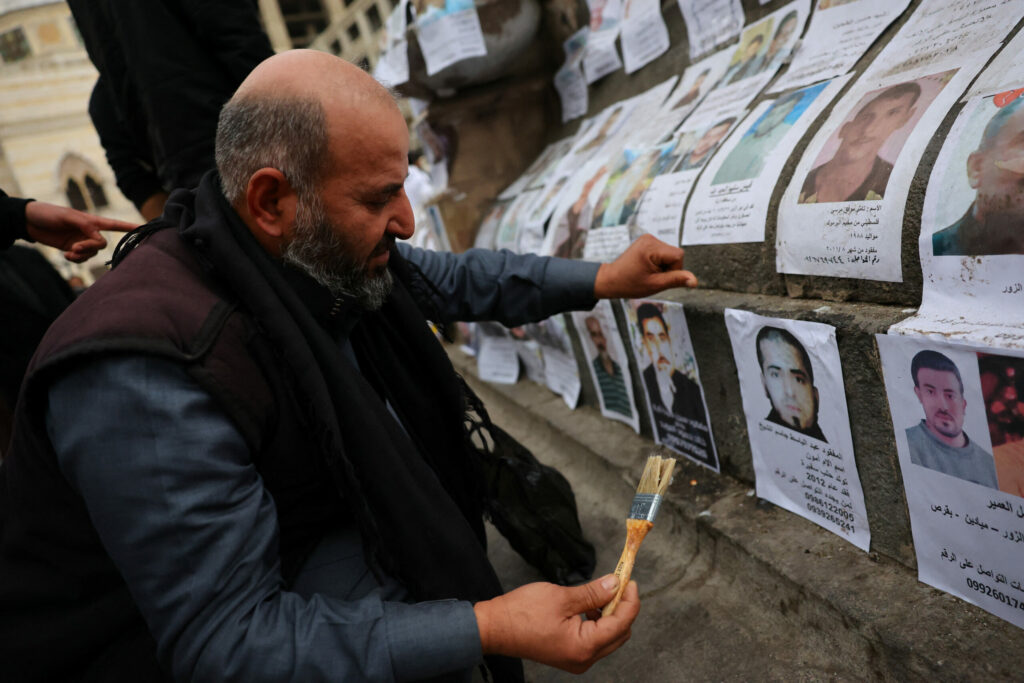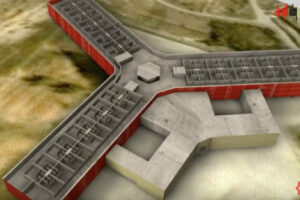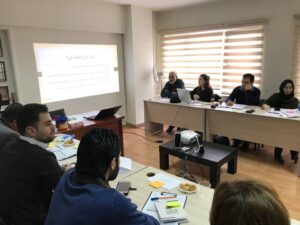(Beirut) – The transitional Syrian authorities should urgently take steps to secure and preserve evidence of atrocities committed under the government of former President Bashar al-Assad, including key government and intelligence documents as well as the sites of atrocities and mass graves, the Association of Detainees and the Missing in Sednaya Prison (ADMSP), Amnesty International and Human Rights Watch said today.
Transitional authorities should urgently coordinate and cooperate with relevant United Nations bodies, Syrian civil society, and international forensic teams to secure, preserve and protect this evidence. Evidence of crimes left behind will be essential to establish the fate and whereabouts of the tens of thousands of Syrians who have been forcibly disappeared by the former government’s notorious security and intelligence apparatus, as well investigating and prosecuting the perpetrators of crimes under international law, including war crimes and crimes against humanity.
“Every additional minute of inaction heightens the risk that a family may never discover the fate of their missing loved one, and an official responsible for horrific crimes may never be brought to justice,” said Shadi Haroun, ADMSP program manager.
Researchers and investigators from the three organizations visited Damascus between December 10 and 20, 2024, including a combined total of 10 detention facilities, the sites of 7 mass graves, and the military court.
“After decades of brutal oppression, injustice and impunity Syrians finally have a glimmer of hope for justice, said Aya Majzoub, deputy regional director for Middle East and North Africa at Amnesty International. “This is a pivotal moment for Syria’s transitional authorities to act decisively and ensure the preservation of evidence as a cornerstone for accountability and reconciliation.”
In all the detention facilities visited, researchers observed that official documents were often left unprotected, with significant portions looted or destroyed. Residents from the neighborhoods around some of these facilities, former detainees, and members of Hay’at Tahrir al-Sham (HTS) inside those facilities said that in some cases, the security and intelligence personnel burned key information before they fled as the Assad government fell.
In some cases, they said that armed groups who took control of the facilities and detainees who had just been freed burned and looted documents. The researchers also observed ordinary people, including families of missing detainees and some journalists, take some documents.
These documents may contain vital information about the structure of the Syrian state’s security and intelligence apparatus, the identity of those responsible for serious crimes, and details about the detainees held in these locations.
ADMSP, Amnesty International and Human Rights Watch raised these concerns during a meeting with members of HTS-affiliated Syrian Salvation Government political affairs department in Damascus on December 16. During the meeting, officials promised to strengthen security around key facilities.
After urgently securing these locations and ensuring that the remaining evidence is not tampered with, the transitional authorities should coordinate with and immediately give unfettered access to the international fact-finding and evidence collection bodies created by the United Nations. They should include the Independent, Impartial Investigative Mechanism (IIIM), the International Institution for Missing Persons (IIMP), and the Commission of Inquiry on Syria (CoI) as well as Syrian civil society organizations with experience in analyzing such evidence.
The Investigative Mechanism should act swiftly to secure evidence, including by establishing a formal agreement with transitional authorities to operate legally and transparently in Syria. It needs to prioritize the immediate preservation documentation and securing of mass grave sites, archives and other critical evidence. Similarly, the Missing Person’s Institution could step into a coordinating role to unify fragmented efforts by Syrian and international civil society groups to secure evidence that could provide answers as to the fate and whereabouts of the disappeared.
By leading a collaborative and systematic evidence preservation process, both bodies can ensure critical documentation is safeguarded, laying the groundwork for accountability and justice. Governments should support efforts to secure and safeguard evidence, including by providing necessary resources and funding.
During the meeting with transitional authorities, the organizations also underscored the importance of securing mass grave sites across the country. Researchers visited the sites of four mass graves on the outskirts of Damascus and shared the coordinates of those sites with the relevant authorities. In all four sites, researchers observed local residents and families of the disappeared try to dig up some of the remains. In one mass grave site, researchers saw local residents dig up a leg that still had flesh on it, indicating that it had been buried recently.
In 2017, an Amnesty International report documenting mass hangings and extermination at Seydnaya prison found that that the bodies of detainees executed or who died from torture and inhumane conditions of detention in that prison were buried in mass graves, including at one of the locations researchers visited in December 2024. Under the former government, authorities rarely returned remains of victims to family members and rarely informed them of their loved one’s death.
The government of ousted President Bashar al-Assad used extrajudicial executions in conjunction with other unlawful tactics, such as arbitrary arrests, deliberate and indiscriminate attacks on civilians, and starvation of the civilian population, to forcibly displace residents of opposition-held areas over the course of the war.
Extrajudicial executions and summary killings are serious violations of international human rights law and can amount to crimes against humanity when carried out as part of a systematic or widespread attack against the civilian population, pursuant to or in furtherance of state or organizational policy to commit such an “attack.” Human Rights Watch and Amnesty International have documented the systematic use of torture under the previous government as a crime against humanity.
Syria’s transitional authorities should clearly and publicly commit to securing, collecting and safeguarding evidence, including from mass grave sites and government records and archives, that will be vital in giving the families of the over 100,000 disappeared in Syria answers about the fate and whereabouts of their loved ones as well as in future accountability processes and legal proceedings. The International Court of Justice’s binding provisional measures in the torture case against Syria obligates the state to preserve evidence of abuses.
The Syrian transitional authorities should also cooperate with the International Committee of the Red Cross and other specialized organizations, including from Syrian civil society, that can provide critical expertise and support to safeguard these records with the view to assist in clarifying what happened to missing people and thereby enable families, left in excruciating uncertainty for years, if not decades, to obtain answers. Public awareness campaigns can explain the significance of evidence preservation, the steps being taken, and how communities can engage in this process without inadvertently hampering it.
“The families of Syria’s tens of thousands of forcibly disappeared deserve an end to their torment,” said Hiba Zayadin, senior Middle East researcher at Human Rights Watch. “Many of the answers to what happened to their loved ones are likely to be found in ransacked offices, looted documents or disturbed mass grave sites. It is vital for Syrians to hear directly from transitional leaders about their dedication and commitment to uncovering the truth and delivering answers to the families of the disappeared.”
To ensure accountability and build trust in their governance, transitional authorities should also put a stop to reprisal killings, making clear that such crimes will not be tolerated. They should address concerns about arbitrary detention in areas under their control. This includes providing independent monitors access to HTS-controlled detention centers, and ensuring every detainee is under judicial supervision. Transparency in how detainees are treated and held is essential to demonstrate a clear break from past patterns of repression by all parties to the conflict in Syria, and to signal to Syrians that the cycle of arbitrary detention and abuse will not be repeated.






